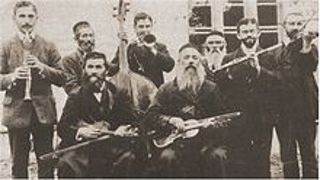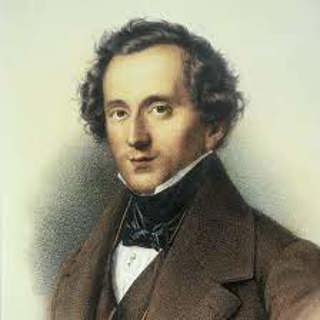
Mendelssohn: A Midsummer Night's Dream
The stories, legends, and myths about the trials and travails of composers lives are legion, like Beethoven's battles against fate, Mozart and Schubert's struggles with finances, Brahms' failures with women, Mahler's troubles with just about everyone, and Shostakovich's near fatal interactions with the government. These stories tend to add to the general understanding of these composers, and in fact they tend to enhance their reputations. We see their struggles in their music, and it makes us admire them more for overcoming them. With Mendelssohn, and to some extent Haydn as well, we have the opposite case. Mendelssohn grew up in a happy, wealthy German family, and it was only late in his life when he underwent any major struggles at all. Whether this happy upbringing contributed to the character of his music is anyone's guess, but Mendelssohn seems to always get the short end of the stick when it comes to reputation, and I think that his generally cheerful music has a lot to do with this fact. But Mendelssohn is no second-rate composer. As I mentioned in April with my show about Mendelssohn's Octet, he was certainly THE greatest composer under 18 that we know of(and yes I'm including Mozart in that), and his best music ranks up there with the best composers in history. And today, our focus on both the overture to Midsummer Night's Dream, and the incidental music that Mendelssohn wrote 17 years later, allows us to enjoy the full breadth of Mendelssohn's staggering talent. This is not only clever and cheerful music. It is also fantastically orchestrated, perfectly structured, and in the case of the overture, it is full of invention and character that is simply mind-blowing from a composer who was just 17 years old at the time. So today we'll talk all about this, from the beauty and perfection of the overture to the incidental music that followed, meant to be performed alongside Shakespeare's play. We'll also talk about the role Shakespeare played in Germany at the time, and how Mendelssohn's upbringing did indeed have a lot to do with the music he chose to write. Join us!
17 Elo 202352min
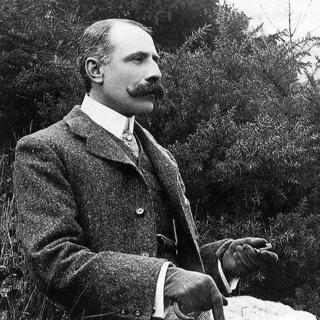
Elgar Cello Concerto
Elgar's Cello Concerto was composed in the shadow of World War 1. It was a piece that marked a profound shift in Elgar's outlook on life and music, and was his last major work before a long silence caused by the death of his wife Alice. It is a piece of remarkable passion for a composer like Elgar, and never fails to move the audience with its combination of grief, melancholy, nostalgia, rage, but also tenderness. Elgar as a composer had been passed by with the invention of atonality and with composers like Stravinsky and Schoenberg pushing the boundaries of where music could go. Elgar stubbornly stayed true to his Romantic impulses, but the concerto also displays some of the inescapable influence of those composers. It is one of the most powerful pieces of the 20th century, but one of the reasons we know the piece so well is an unforgettable recording made in 1965 by Jacqueline Du Pre. It is very unusual for a piece to be so associated with a single performer, but Du Pre truly made the Elgar a standard concerto for the cello and it is now a piece that every cellist makes a part of their repertoire. We'll talk about all this and more during the show today - join us!
10 Elo 202352min
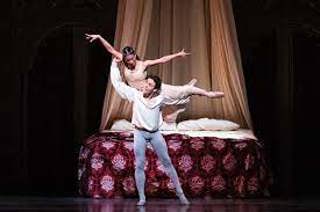
Romeo and Juliet in Classical Music
The "love theme" from Tchaikovsky's Romeo and Juliet Fantasy-Overture is one of the most famous themes in the history of Western Classical Music. The story it accompanies might be the most famous Western play ever written. Just like Eine Kleine Nachtmusik seems to define the powdered wig era of classical music to the general public, the passionate theme from Tchaikovsky's Romeo and Juliet seems to define romanticism in music because Tchaikovsky's Overture-Fantasy captures Shakespeare's masterpiece with a roiling and unstoppable intensity. But Tchaikovsky's setting of Romeo and Juliet, while probably the most famous, is by no means the only reimagining of the play by classical composers. There have been nearly a dozen adaptations of Romeo and Juliet by classical composers, including overtures, ballets, suites, and operas. Romeo and Juliet, just like it has been for actors, directors, and the audience, is an inexhaustible source for composers in a way that few pieces of literature or dramatic theatre have been in history. So today we'll compare just some of them for you - I'll be looking at Tchaikovsky's Romeo and Juliet Fantasy Overture, Prokofiev's Ballet Romeo and Juliet, Berlioz's choral symphony Romeo et Juliette, a brief look at Gounod's opera Romeo and Juliet, and Leonard Bernstein's Westside Story. We'll take a look at how these 5 composers inserted their distinctive personalities onto the music, leaving no doubt that this was Shakespeare, and Romeo and Juliet, through their eyes. I'll do this by giving a general overview of each piece, and then I'll zero in on two ideas - the portrayal of Juliet, and the portrayal of Tybalt's Death(or fighting in general). This way we can see how these composers handled these pivotal characters and moments, all in markedly different ways. Join us!
3 Elo 202349min
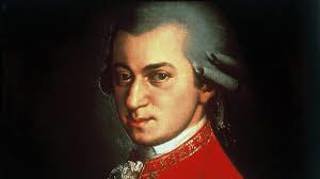
Mozart Symphony No. 38, "Prague"
Very few cities have had a relationship with a single person, especially a foreigner, like the city of Prague and its love affair with Mozart. Here's what Lorenzo Da Ponte, Mozart's librettist for some of his greatest operas, said about it: "It is not easy to convey an adequate conception of the enthusiasm of the Bohemians for [Mozart's] music. The pieces which were admired least of all in other countries were regarded by those people as things divine; and, more wonderful still, the great beauties which other nations discovered in the music of that rare genius only after many, many performances, were perfectly appreciated by the Bohemians on the very first evening." Mozart had been losing his popularity rapidly in Vienna, and so his trips to Prague were a boon to his self-esteem. He wrote in a letter, speaking of Prague's euphoric reaction to his opera the Marriage of Figaro: "here they talk about nothing but Figaro. Nothing is played, sung, or whistled but Figaro. No opera is drawing like Figaro. Nothing, nothing but Figaro. Certainly a great honor for me!" Now whether or not Mozart actually wrote this 38th symphony FOR the city of Prague or not is disputed. It seems as if he finished the symphony before he was invited to come to Prague for the first time. All we know for sure is that the first performance of the piece was definitely in Prague, and it included a couple of details that point to Mozart writing it specifically with both the audience and the musicians of Prague in mind. But the most important thing about this symphony is that it marks the beginning of a late period in Mozart's symphonies that sees him pushing at the bounds of symphonic form in a nearly Beethoven-like way. There is no symphony where that is more true than the one we're going to talk about today, the 38th symphony. The sheer amount of invention alone in the first movement is enough to hold our attention for weeks, but we'll talk about the whole symphony today, from its formal innovations, to its warmth and joy, and to the little clues that make us think that this symphony was a stunning and perhaps unprecedented gift from Mozart to the city that adored him so much. Join us!
27 Heinä 202353min
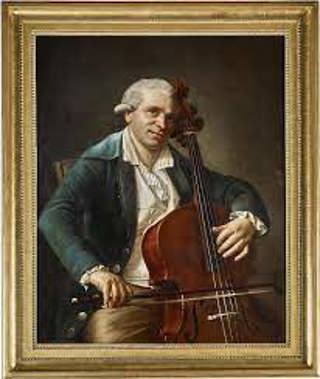
Jean-Louis Duport Cello Concerto No. 4
Thank you to Nicole for sponsoring today's show on Patreon! Have you ever heard of Jean-Louis Duport? I imagine that unless you are a professional cellist, or someone who studied cello as a child, you probably haven't. Even though my sister is a professional cellist, I had never heard of him before I was asked to make this show. Duport is a historical figure who has been almost completely forgotten, though he was part of a fascinating group of musicians who encountered Beethoven, Frederick the Great, and even Napoleon! He and his brother Jean-Pierre were two of the greatest cellists of their era, and Jean-Louis lives on for cellists as the writer of a set of etudes or studies that are still used by cellists all over the world to refine their techniques. But Jean-Louis Duport also wrote 6 cello concertos, pieces which show his profound connection with the instrument, as well as his mastery of the style of his time. Today on the show I'll take you through one of those concertos, his 4th, but I'm also going to do something a bit different. Since this will be my first time encountering the music of Duport, I want to show you how I might approach this piece as a conductor learning it for the first time. I've been conducting professionally now for almost 15 years, so there aren't a lot of pieces that are brand new to me anymore, but if I were to conduct this concerto, it would be totally new to me, which means that I approach this music in a totally different way than a piece I'd conducted a few times before. So today on the show we'll go through the piece, as well as my process for how I would learn a work like this, from start to finish. Join us!
20 Heinä 202343min

Brahms B Major Piano Trio
When we listen to the music of Johannes Brahms, we often are reminded of the image of the portly bearded Brahms at the piano, eyes closed in a soulful pose. Brahms' works always, even in his youth, seemed to have a burnished maturity about them. As I've said many times on this show, Brahms' music is often described as autumnal, and there's a good reason for this, as its gentle melancholy is one of those things that never left Brahms even in his earlier works. But the piece we're talking about today isn't an early work, or a late work of Brahms. Actually, it's both! Brahms' B major trio is one of the rarest of rare pieces, in that it is published in two distinct versions, a version that Brahms wrote when he was just 20 years old, and a work that he heavily revised near the end of his career 35 years later, making changes that in some senses fundamentally recast the piece. At the same time, much of the original material is left in place, creating an unusual amalgam of the youthful and the mature. Brahms himself jokingly said that in the revisions of the piece, "I didn't provide it with a new wig, just combed and arranged its hair a little" Today on this Patreon sponsored episode I'll take you through this piece in both of its versions, exploring the original trio and then its far more performed revision, trying to see why Brahms made the changes that he made, and what we can learn about his compositional process. We'll also learn why Brahms' B major piano trio is the answer to a famous(in the classical music world) trivia question! Join us!
6 Heinä 202355min
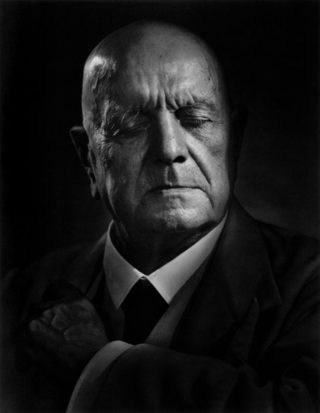
Sibelius Violin Concerto
There's a joke among classical musicians that the only parts of a piece that matter are the beginning, the end, and one place in the middle. I don't think its something that anyone really believes in, but the value of the beginning of a piece in setting the scene cannot be ignored, and the absolutely stunning opening of the Sibelius violin concerto is no exception. A soft carpet of violins slowly oscillating between two notes sets up the entrance of the violinist, who over the course of the concerto will do just about everything a violin is capable of doing, all in a concerto of both eye-popping difficulty, but also heartwarming AND heartbreaking warmth, passion and character. There is often what is described as the "Big 5" of violin concerti, which includes the concerti of Tchaikovsky, Beethoven, Brahms, Mendelssohn. The Sibelius violin concerto is the only 20th century violin concerto that has found its way into the Big 5 and there's a reason for it. All of those concerti synthesized the need for virtuosity with the imperative of writing truly great music. But to me, and this might be a controversial opinion, no one did it quite like Sibelius. We'll hear all about the concerto, the circumstances that created its disastrous opening, and ask the question of what makes Sibelius such a distinctive composer, someone who sounds like no one else on earth.
29 Kesä 202348min
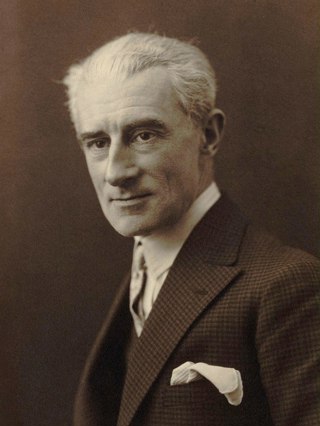
Ravel, Bolero + La Valse
Maurice Ravel the Magician, the Swiss Watchmaker, the aloof, the elegant, the precise, the soulful, the childlike, the naive, the warm, the radical, the progressive. These are all words that were used to describe a man of elegant contradictions throughout his life and into today. I talked a lot about Ravel's skill with orchestration last week when we discussed Mussorgsky's Pictures at an Exhibition, but Ravel's brilliance and creativity in terms of orchestral sound is absolutely unparalleled in musical history. But Ravel is somebody I've very rarely covered on the show, partly because he didn't write very many large scale works that would cover a whole hour long episode. Well, it took 6 years for me to figure it out, but I realized a little while ago that I could cover two of Ravel's shorter pieces and put them together on a double bill, so to speak. So today I'm going to tell you about Ravel's most beloved and most despised piece, Bolero, and about my favorite piece of Ravel's, La Valse. These are two pieces that could not be more different in their aims, in their constructions, and in their impacts on the audience. They are both thrillingly exciting, but in completely different ways. A good performance of Bolero should make you want to jump out of your seat with excitement, while a good performance of La Valse should terrify you to your core. Join us to learn all about it!
22 Kesä 202354min
